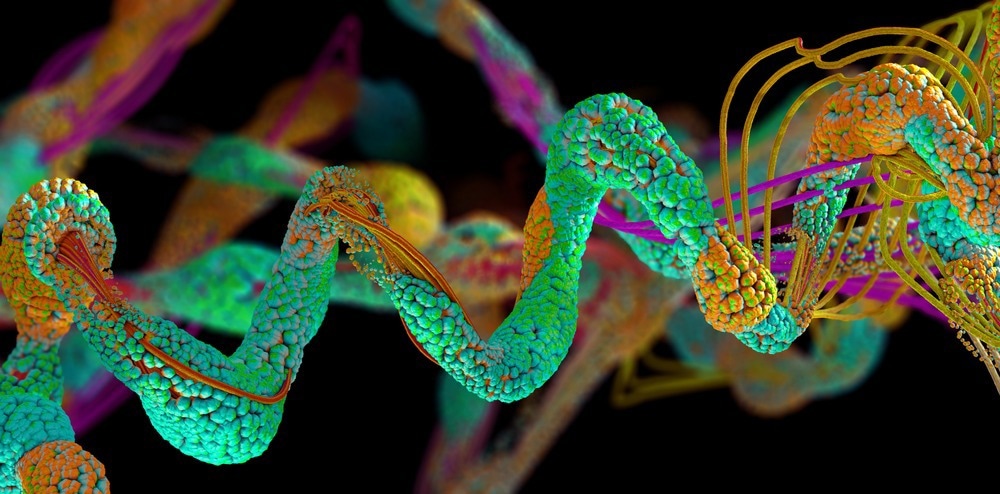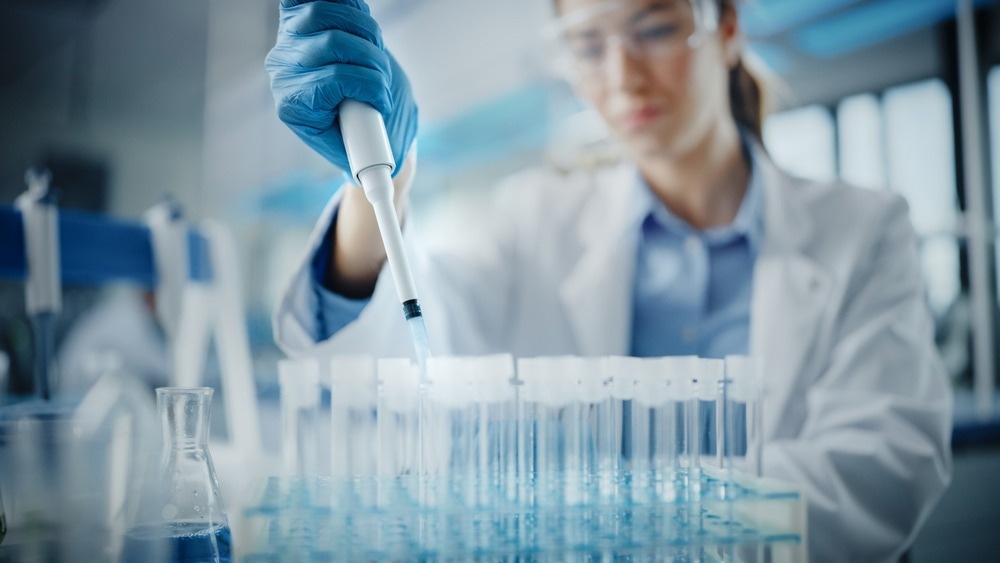I am Mark Abbott, the Managing Director of Peak Proteins, part of Sygnature Discovery, an integrated contract research organization.
As an undergraduate, I enjoyed experimenting, not knowing the outcome, and solving problems. This led to a Ph.D. and a post-doc working on membrane receptors and carbohydrate-binding proteins.
I love the research challenge of understanding and solving protein problems. This led to a whole career working with proteins respectively.
The term “protein science” is an umbrella term for the structure, function, and biochemical significance of proteins. How has this field changed over the last 20 years, and what makes it such an exciting sector within drug discovery?
Some techniques we use today are over half a century old, for example, ion exchange and size exclusion chromatography and SDS-PAGE. Some processes have changed dramatically, such as gene synthesis, the increased use of automation for techniques like protein crystallization, and the much greater deployment of cryoEM. Together, these have rapidly increased our ability to solve structures of proteins. But, of course, protein crystallography itself is much older. Fred Sanger was awarded his Nobel Prize in 1958 for the crystal structure of insulin.
However, protein science has constantly evolved such that what we do now is a complete revolution by evolution.
What are the industrial applications of protein science?
Proteins are regularly the targets for drug discovery. Trying to find a new cure for cancer will often focus on the aberrant protein in a disease process. Similarly, over the last 30 years, proteins have become essentially drugs in their own right. The ability to make proteins as drugs on a very large scale has become critical.

Image Credit: Christoph Burgstedt/Shutterstock.com
Cryo-EM has become extremely important and is now starting to impact protein science in the drug discovery process. Gene synthesis, which began to develop 20 years ago, now underpins so much within protein science. The impact of AI is rapidly increasing.
The foundation of all this is the ability to make high-quality proteins, which still rely on traditional techniques. The ability to make that protein and screen against it is critical within drug discovery.
You are the session chair for the “Protein Science” session at SLAS EU 2023. Please could you introduce us to the session speakers, as well as the topics covered?
There are three session speakers, the first being Pravin Mahajan, who works for Astex Pharmaceuticals in the UK. Astex is one of the leading companies exploiting structural biology, crystallography, and cryo-EM, to underpin and drive drug discovery.
Secondly, we have Magdalena Richter, who works for AstraZeneca. Magdalena’s talk covers hydrogen-deuterium exchange coupled with mass spectrometry and how AstraZeneca uses this technology to understand protein structures.
The third speaker is Su Jerwood from Exscientia. Her talk discusses a statistical approach to understanding experiments, processes, and assays. Scientists are sometimes a little suspicious of statistics, but I have seen it exploited successfully.
Throughout your career, you have led projects and published over 30 peer-reviewed publications on proteins in drug discovery. How have you seen the relationship between protein science and drug discovery change throughout your career?
When my career began, recombinant DNA technology was in its infancy. Even drug biochemical screening only used crude tissues and radioligand binding assays.
However, now you can order hundreds of variants of synthetic genes and run many parallel screens against a particular target. You can design precisely how to run a screen using recombinant DNA technology and support this with highly detailed, high-resolution structural biology. It has all been an evolution, but the result is a revolution.

Image Credit: Gorodenkoff/Shutterstock.com
Given your expertise, how do you foresee the field of proteins in drug discovery changing in the coming decade? What will be the main challenges the field will face in this time?
I believe that AI is only in its infancy regarding its impact on protein science and drug discovery. Though others are better informed to comment on this, I am aware that AI is starting to impact what we do significantly, and many of our clients are well-invested in AI.
A second technology that will become increasingly important is cryo-EM, particularly in drug discovery. I suspect the ability to go through the process faster will also increase. The basis of this will still be the ability to produce extremely high-quality proteins.
SLAS is an international professional society aiming to transform research by promoting collaboration at the intersection of science and technology. Why is this collaboration so important within global Pharma and drug discovery?
Collaboration in drug discovery is critical. Even big global pharma organizations such as AstraZeneca, while they do have completely internal projects, they are also involved in much collaboration.
Being able to promote this collaboration at meetings like SLAS is crucial. Scientists are bright and curious people, and collaboration fuels that whole process.
Revolution by Evolution: Protein Science and its Impact on Drug Discovery
You are the founder and Managing Director at Peak Proteins, a UK biotech business. Why is it so important for SLAS EU to recognize the quantity and quality of businesses here in Europe?
Before this conference, I watched an interview with Steve Rees from AstraZeneca, who commented on how the COVID-19 vaccines were not invented in nine months but by the investment from the previous decade in basic science and technology. Much of that investment was within Europe, both in industry and academia.
Continuing that investment within Europe is extremely important
With partnerships being fundamental to accelerating scientific research, how important are in-person conferences such as SLAS in nurturing relationships between sectors, especially between academia and industry?
Relationships with clients, suppliers, and collaborators underpin our business. Our business is about solving protein-related problems for our clients so that they can progress their work. In-person conferences are an important part of building relationships. We always have challenging projects where you try to anticipate what will happen, but following the first experiment, even the best-laid plans can fall apart.
We love this type of project where it does not go to plan, and you have to inspect the data and literature, talk to the client, and try to solve those problems.
About Mark Abbott
Dr. Mark Abbott spent more than 20 years working as a protein biochemist at AstraZeneca involved in small molecule and biologics drug discovery. He left in 2014 and founded Peak Proteins a CRO providing services to industrial and academic clients globally.
Initially just two people it has grown to be now ~ 50 people with skills in protein expression and purification, protein biophysics and protein structural biology, including Xray and cryoEM. Peak Proteins was acquired by Sygnature Discovery (an integrated drug discovery CRO) in April 2022 and is now fully a part of that organisation. A long career fuelled by a continuing enthusiasm for tackling challenging proteins!